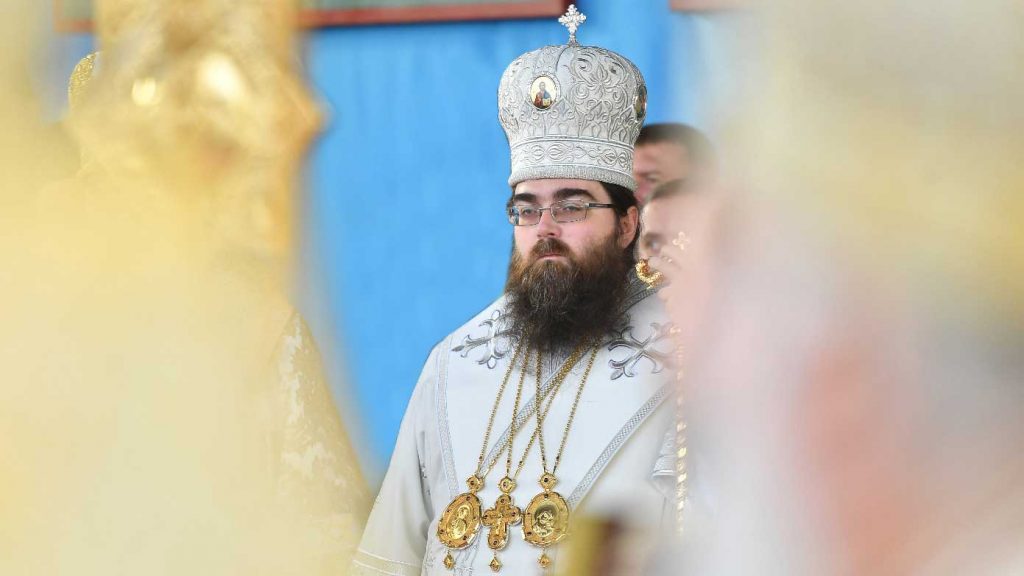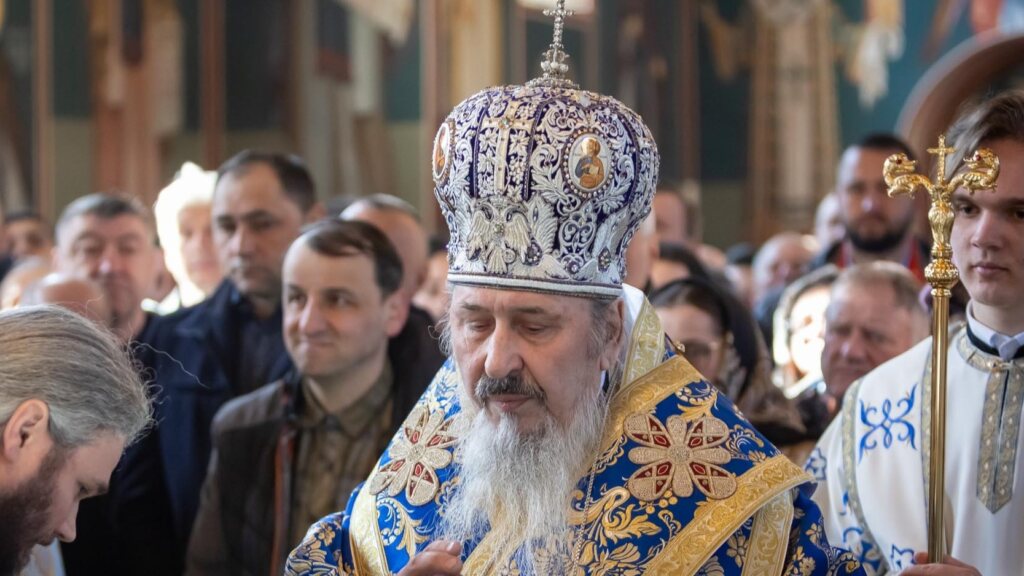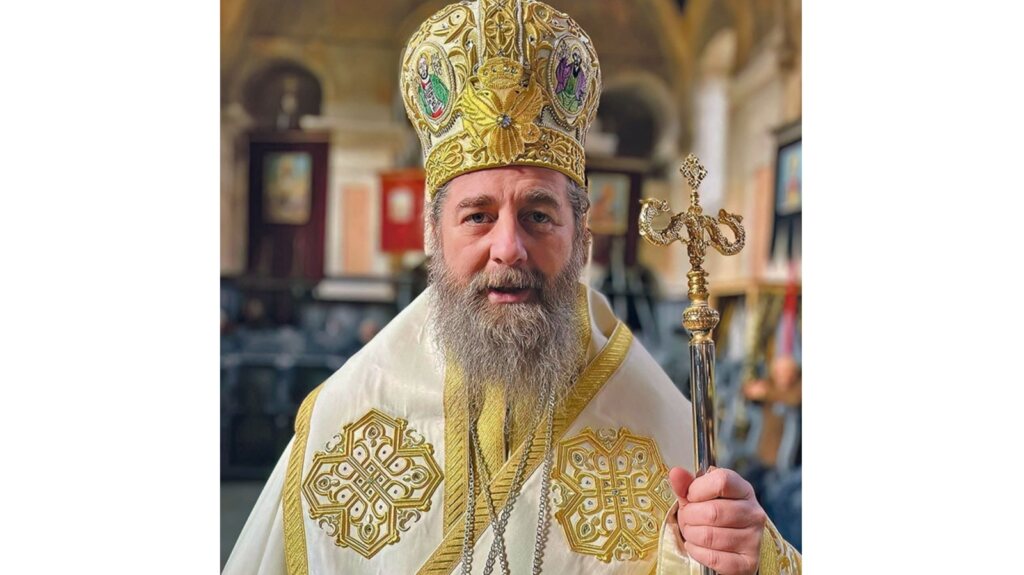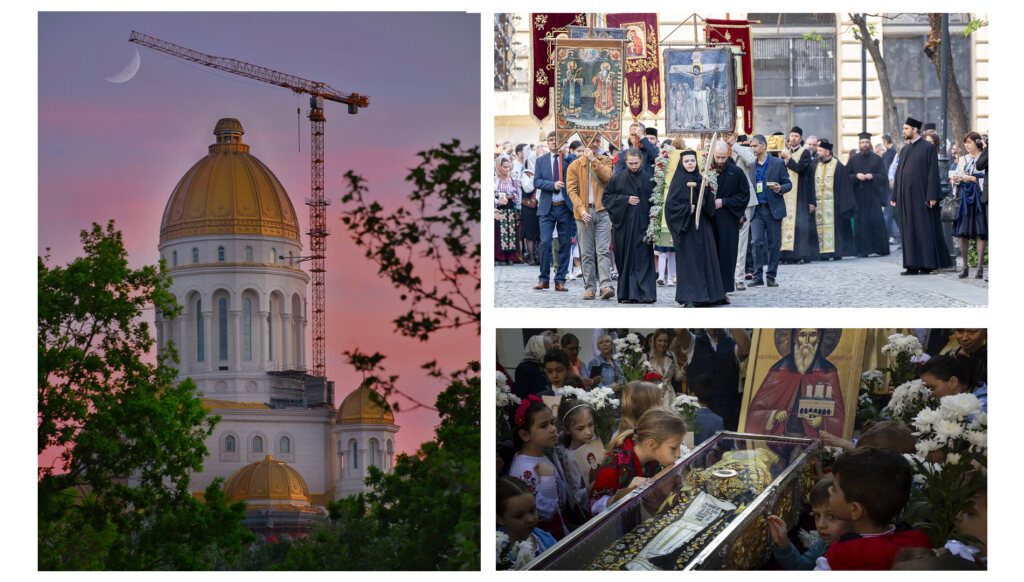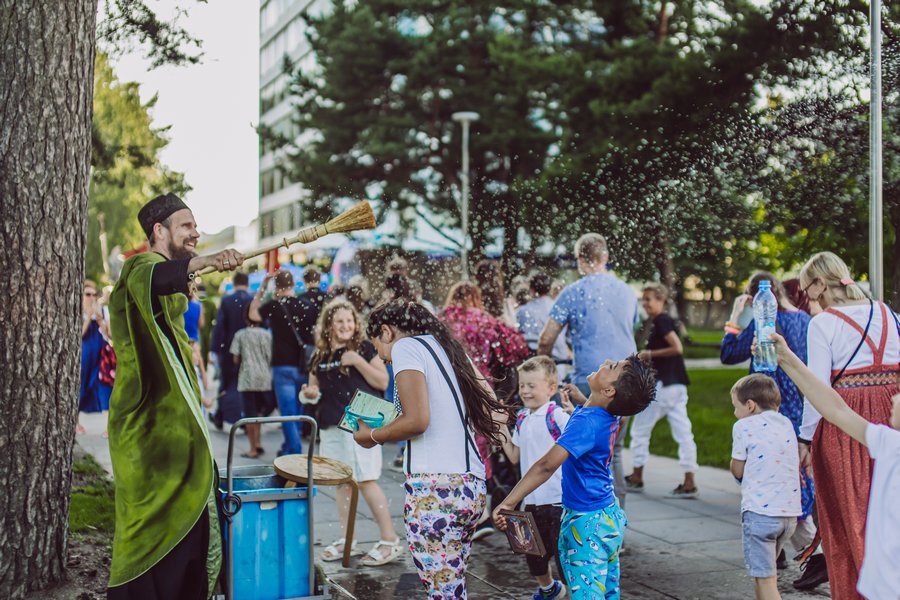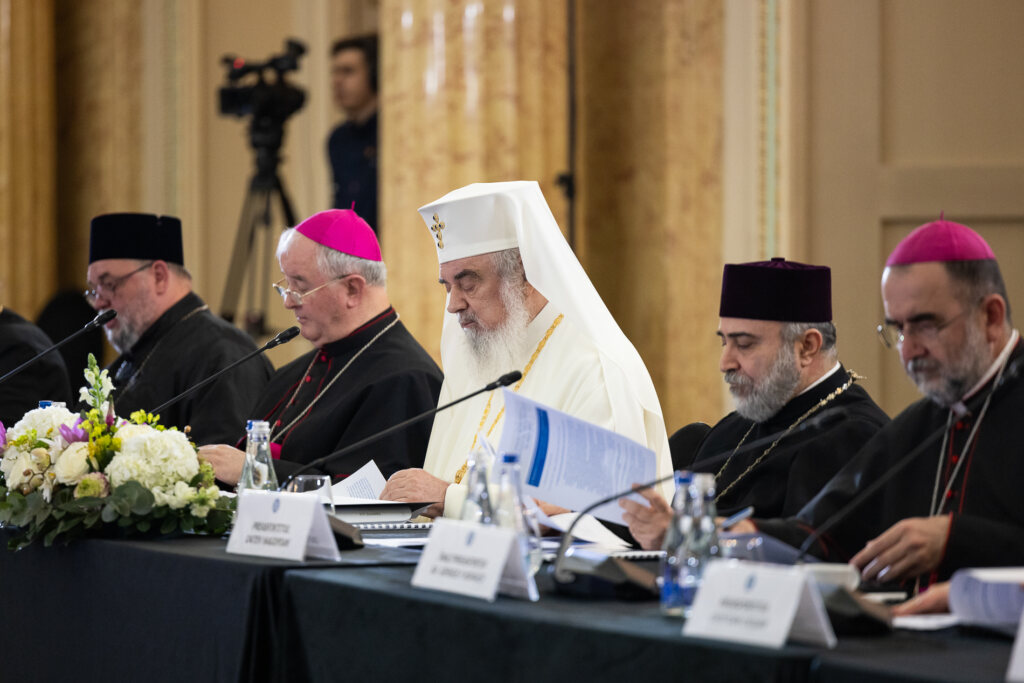His Beatitude Metropolitan Rastislav of the Czech and Slovak Orthodox Church offered his first interview with the Basilica News Agency, shortly after his first visit to Romania on the Feast of St Demetrius the New 2017. His Beatitude spoke about the Church he leads and addressed the challenges that Christians are facing in modern society.
Referring to the Church’s media ministry, HB Metropolitan Rastislav disagreed with the online alteration of ‘the acuity of perception and of the depth of spiritual life,’ adding that ‘we cannot completely abandon the Internet,’ because ‘life in the Church would be perceived as anachronism, which is of no interest to the modern man.’ The Primate of the Orthodox Church of the Czech Lands and Slovakia explained that only using technology one could reach the ‘recluses of the cyberspace.’
Metropolitan Rastislav concluded his interview addressing an urge to the Romanian people saying ‘Be faithful to your homeland, keep your traditions and culture, your families, observe the commandments of the Lord, and be faithful sons and daughters of the Romanian Orthodox Church!’
Other topics addressed in the interview include impressions from his visit to Romania, cooperation between local Churches, Orthodox youth.
Please find below the full text of the interview offered to the Basilica News Agency of the Romanian Patriarchate by His Beatitude Rastislav, Archbishop of Presov and Metropolitan of the Orthodox Church of the Czech Lands and Slovakia. Download Russian version here.
Basilica.ro: A short while has passed since the celebrations of the Patriarchal Cathedral in Bucharest that you attended. What did you feel and notice during the pilgrimage organized on this occasion?

HB Met. Rastislav: I have joyfully accepted His Beatitude Patriarch Daniel’s invitation to visit the Romanian Orthodox Church and to attend the Bucharest celebrations. A special spiritual experience was my participation at the Divine Liturgy, at which I concelebrated with other guests, His Holiness Kirill, Patriarch of Moscow and All Russia, His Beatitude Anastasios, Archbishop of Albania, other hierarchs and clergy of the Romanian Orthodox Church, as well as representatives of the sister local Orthodox Churches.
Impressive was not only the great number of believers, who came to the Divine Liturgy and venerate the holy relics but above all with how much love and faith they prayed for several hours in open air despite the cold weather.
Basilica.ro: What are your general impressions following your short stay in Romania?
HB Met. Rastislav: Despite the brief period of my visit, the experience of common prayer, the talks with His Beatitude Patriarch Daniel, the openness and goodwill of the Romanian people, their religiosity and devotion to their Church left me the brightest memories. One day I hope I will have the opportunity to visit the old Romanian monasteries and to be acquainted with the centuries-old monastic tradition with which your land is famous.
Basilica.ro: Saint Demetrius the New is one of our renowned Saints. We would like to know who is the most popular Saint in the Church that you pastor and why is he or she popular?
HB Met. Rastislav: Our Church particularly honours the Equal of the Apostles Saints Cyril and Methodius, the Blessed Ruler Prince Rastislav, thanks to whom the Slavic peoples were Christianized and from whom they received their writing system. Also honoured in our Church are Martyrs Ludmilla and Wenceslaus, founders of the Czech statehood, and, of course, a contemporary Saint, Martyr Gorazd of Prague, Bohemia and Moravo-Cilezsk, who has shown the example of a genuine shepherd ‘to lay down his life for his friends’ (John 15:13).

Basilica.ro: How do you see future cooperation between the Romanian Orthodox Church and the Orthodox Church of the Czech Lands and Slovakia?
HB Met. Rastislav: The foundation of all relations between the local Orthodox Churches is communication through prayer. It is very important when people pray for each other when another person’s pain or joy become part of you. That is why we intend to develop pilgrimages and the exchange of Theology students.
Orthodox Churches living in the European Union are especially in need of mutual support and communication. Together, it will be easier to assess the danger of modern European politics, which threatens the existence of the spiritual, cultural and moral values established by our ancestors based on the identity of our peoples.
Basilica.ro: What are the most important problems that the Czech and Slovak Orthodox Church experienced during the communist regime? How did you manage to overcome them?
HB Met. Rastislav: Our local Church has not experienced such persecutions on a large scale, as was the case, for example, of the Russian Orthodox Church in Soviet Russia. Of course, there was total control over the clergy, but this cannot be called open hostility. In the late 1950s, the Uniate parishes in Slovakia were forcibly attached to the Orthodox Church, which were like delay-action mines for future generations.
Because of violence, following the so-called Prague Spring in 1968, mass return to Uniatism started accompanied by violence and incitement to mutual antagonism. Following the so-called Velvet Revolution in Czechoslovakia in 1989, the state returned the Uniate places of worship, expropriating at the same time the Orthodox Church. The distribution of properties began, while Orthodox priests were banished from churches. Many communities were forced to pray in private houses, often very inadequate to serve. Other communities set up altars under the open sky, where divine services and Holy Mysteries were officiated. In return for the places of worship taken, the State allocated monetary compensations, which, of course, were insufficient for the construction of other places of worship.
Because it was impossible to employ architects and professional builders, the believers have raised funds, provided building materials, and built new churches through their efforts, according to their possibilities. For this reason, many buildings are now in deplorable condition and require major repairs and investments. Furthermore, we are facing the problem of insufficient places of worship in the cities. The rural population is aging and young people who have moved to the cities are left without the possibility of spiritual guidance. Only now, we have been able to build and consecrate places of worship in Bratislava and in Kosice, the most populated cities in the country. Undoubtedly, this is just the beginning and it will require much effort and financial investment to enable people living in big cities to find a church or to establish their own ecclesiastical community for a full spiritual life.
Basilica.ro: Young people are the future of the Church. How does the Orthodox Church of the Czech Lands and Slovakia respond to the problems young people are facing?
HB Met. Rastislav: The young generation represents the future of each nation and every state and, therefore, of the Church. For us, it is a priority to educate children and youth in traditional families, where there are a father and a mother, brothers, and sisters, in which respect for the elderly is maintained and children are brought up according to the traditions of their people, their culture, commitment and love for their homeland.
Our Church is separate from the state, but our priests have the opportunity to teach religious education in public schools. We have the Orthodox Youth Fellowship comprised of groups of young people from different parishes. Fellowship organizes joint meetings, seminars, summer camps, sports events that give young people the opportunity to fully communicate, to study Theology and to participate in church life. Thanks to the personal experiences acquired in the Fellowship, many young people later enter spiritual schools, receive theological education and become priests of the Orthodox Church.
Basilica.ro: How is the Czech and Slovak Church involved in society?
HB Met. Rastislav: Although our local Church is constitutionally separate from the state, it benefits from its support, and the life of the Church is an integral part of the society. It cannot be limited to philanthropic actions, to hospitals, orphanages or retirement homes for the elderly, to religious education in schools.
The mission of the Church in the world is not only social work or helping the needy, but also prayer, proclaiming the Word of God, and carefully keeping the Truth of the Gospel. Saint Paul quotes: ‘For our struggle is not against flesh and blood, but against the rulers, against the authorities, against the powers of this dark world and against the spiritual forces of evil in the heavenly realms’ (Ephesians 6:12).
Basilica.ro: The Church is present online and tends to become more and more present on social media networks. Do you think that cyberspace is suitable or not for spreading the evangelical message?
HB Met. Rastislav: Cyberspace has become an integrated part of modern human life. Many people, because of their profession or their voluntary lifestyle, become recluses of the cyberspace. Concepts such as corrected reality and virtual reality become a life norm for young people and therefore only using technology can we reach and help them find Christ. In today’s society, the opinion is strengthened that if an event does not appear on the Internet, then it loses its relevance.
Unfortunately, this spirit also penetrates into the Church due to which acuity of perception and the depth of spiritual life are lost. However, we cannot completely abandon the Internet; otherwise, life in the Church will be perceived as an anachronism, which is of no interest to the modern man, and genuine spiritual values will be replaced by a corrected, virtual reality.

Basilica.ro: If you were to make a prognosis, where do you see Orthodoxy in ten years from now?
HB Met. Rastislav: It is quite risky to make a forecast for such a long period given the developing world today with its stunning speed, the spread of the Internet, and the development of technologies in various fields of human activity. Judging by what is happening in our country, Orthodoxy awakens interest in people seeking the unaltered faith and authentic traditions that have completely disappeared for example at other Christian confessions.
Many contemporary persons, tired of informational pressure, seek spiritual peace in the solitude of monasteries. I strongly believe that today the Orthodox Church needs the inviolable and actual evangelical values to be strengthened by the example of one’s life, and given these conditions, I can see a bright future of the Church not only for the next ten years but also over a thousand years.
Basilica.ro: In the end, we would like you to send a message to the Romanian people.
HB Met. Rastislav: First, I would like to express my respect for the Romanian people and I wish them steadfastness in the Orthodox faith. Romanians, be faithful to your homeland, keep your traditions and culture, your families, observe the commandments of the Lord, and be faithful sons and daughters of the Romanian Orthodox Church! May God’s blessing be with all of you!
***
His Beatitude Rastislav, Metropolitan of the Orthodox Church of the Czech Lands and Slovakia, is the youngest among the Primates of the Autocephalous Orthodox Churches.
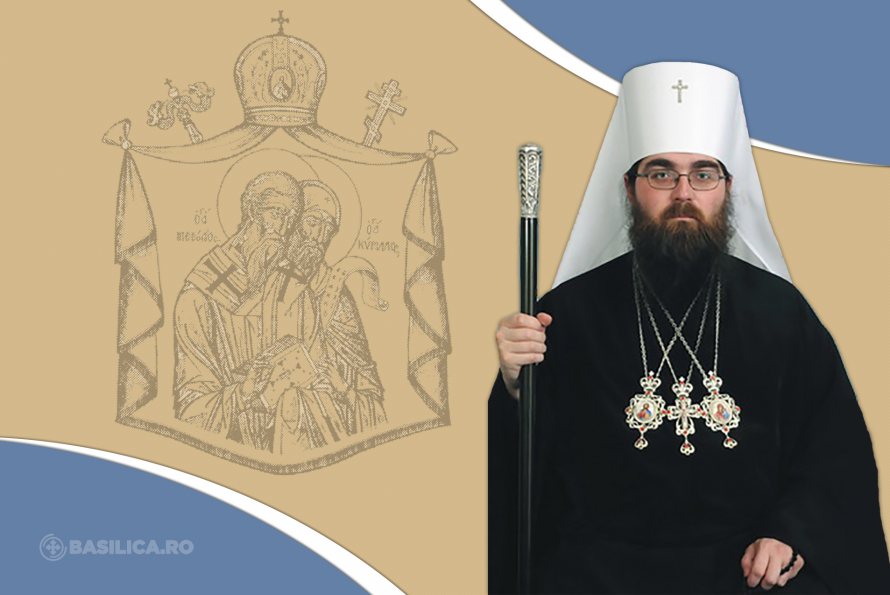
Metropolitan Rastislav (by his secular name Rastislav Gont) was born on the 25 January 1978 in Snina, Slovakia. His Beatitude Rastislav in his ministry strives for a strengthening of the pastoral activities and liturgical life of the Church.
He is a member of the Scientific Council of the Faculty of Orthodox Theology of the University of Prešov, over which he has a canonical supervision according to the Constitution.
Due to his active contributions to the different public and church events, he has gained a good status in the society and is a member of different panels.
He has knowledge of the Russian and Greek languages and passively the German, English, Polish and Serbian languages.
The Ecumenical Patriarchate recognized the autocephaly of the Czech and Slovak Orthodox Church in 1998.
Photography courtesy of Robert Nicolae / Basilica.ro
